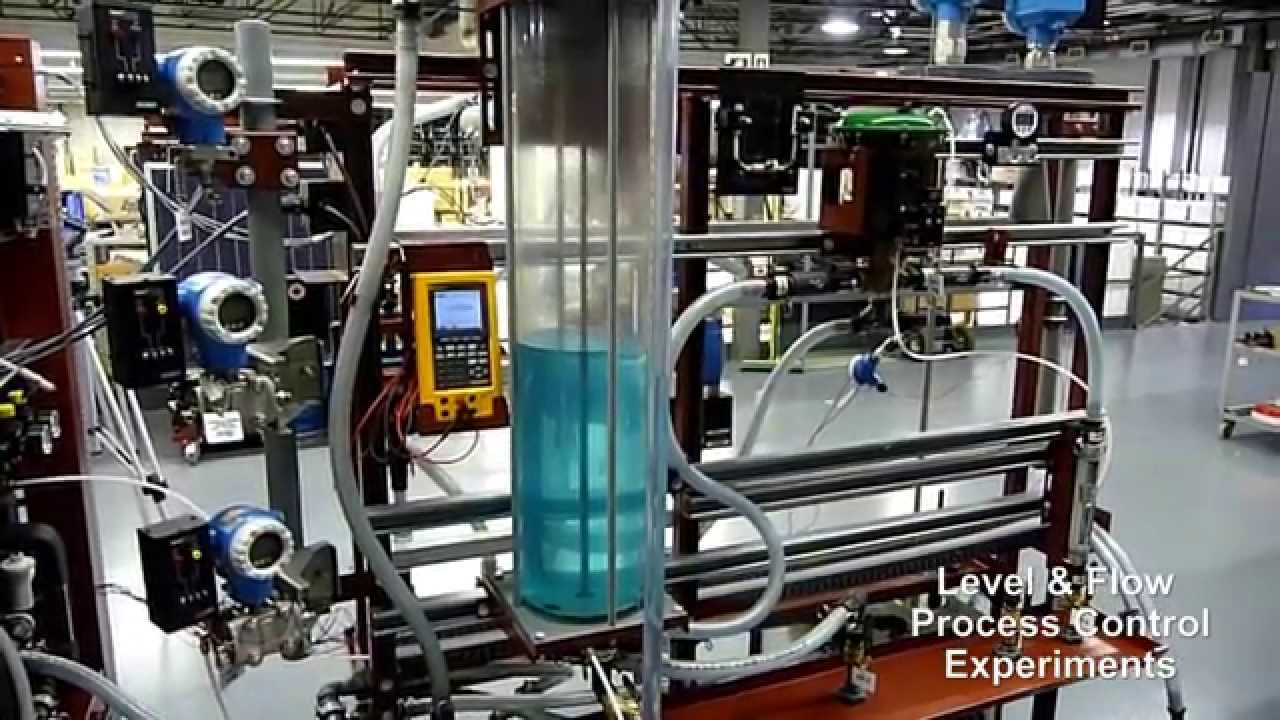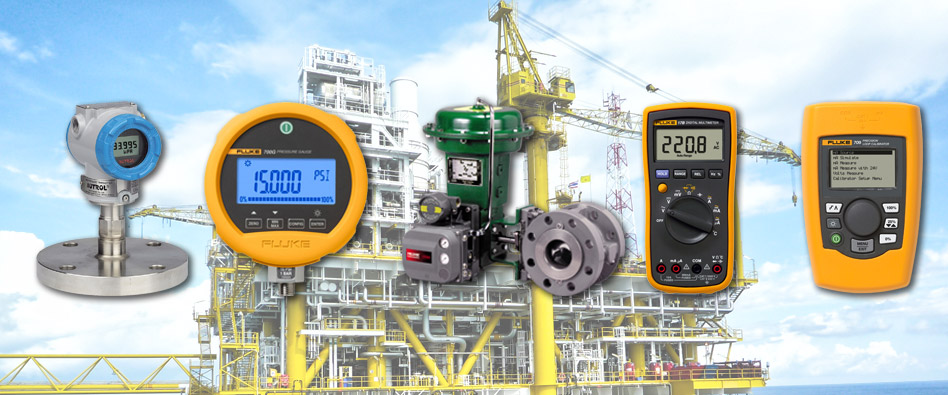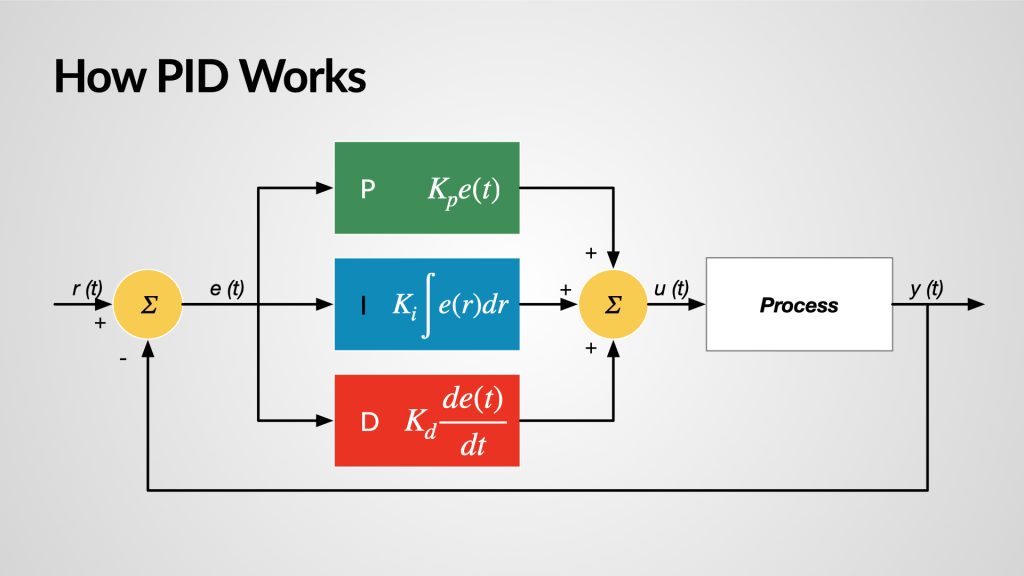Engineering has always been a field of innovation and evolution, offering exciting opportunities for those who choose it as a career path. As a fresh graduate or a college student,…

Latest Instrumentation Interview Questions and Answers – For Freshers
Instrumentation is essential for maintaining precise measurements, process control, and monitoring in today’s fast-paced technological and industrial environment. Acing the interview process is essential for college students and recent graduates looking to launch their careers in the field of instrumentation.
The article explores the topic of instrumentation interview questions, providing insightful information, professional advice, and justifications for why how you respond to these questions may make or break your interview success.
What is Instrumentation?
The science of designing, creating, and maintaining devices used to measure, regulate, and monitor diverse processes in sectors including manufacturing, energy, healthcare, and more is referred to as instrumentation. It includes a broad range of technological components, including sensors, transmitters, controllers, and software systems, all of which work together to facilitate precise and effective process management.
Instrumentation Interview Questions and Answers PDF

Instrumentation engineers design, install, and maintain the instruments that are used to measure and control these variables.
Why Should One Solve Instrumentation Interview Questions?
Solving instrumentation interview questions goes beyond the interview room. It equips you with the necessary knowledge and problem-solving skills to excel in your career. Here are some compelling reasons why you should dedicate time to mastering these questions:
- Demonstrates Expertise: Acing instrumentation questions demonstrates your command of core ideas, making you an appealing candidate for a potential job.
- Problem-Solving Ability: Interview questions frequently model real-world scenarios, evaluating your capacity to analyze issues and offer rational solutions, a crucial quality in any technological career.
- Increased Confidence: Thorough preparation provides you the courage to answer difficult questions, impressing interviewers.
- Edge Over Competitors: A thorough understanding of instrumentation basic concepts might provide you an advantage over other applicants in a competitive work market.
- Versatility: By learning principles that are applicable to a variety of sectors, you may increase the scope of your job options.
Instrumentation Engineer Interview Questions and Answers
Check out the latest Instrumentation Engineer Interview Questions along with answers for your next interview.
What’s the role of an instrumentation engineer?
Instrumentation engineers design, install, and maintain instruments for accurate measurement and control of industrial processes.
Explain the working principle of a pressure transmitter.
Pressure transmitters use sensors to convert fluid pressure into electrical signals, enabling remote monitoring and control.
How do you calibrate an instrument?
Calibration involves comparing an instrument’s measurement to a known standard and adjusting it to ensure accuracy.
Describe PID control.
PID control adjusts processes by considering proportional, integral, and derivative factors to maintain desired setpoints.

What’s the purpose of a PLC in instrumentation?
Programmable Logic Controllers automate processes by executing programmed logic, enhancing efficiency and control.
Differentiate between analog and digital signals.
Analog signals are continuous and vary, while digital signals are discrete and represented as binary values.
What is the HART protocol used for?
HART protocol enables communication with smart devices, allowing digital and analog data exchange for diagnostics and control.
How do you ensure safety in instrument installations?
Safety is ensured through proper grounding, using explosion-proof equipment, and adhering to industry standards.
Explain SCADA and its significance.
SCADA systems monitor and control processes remotely, collecting data for analysis, enhancing decision-making, and improving efficiency.
Discuss the role of temperature sensors in industrial processes.
Temperature sensors detect changes, helping maintain optimal conditions in processes like chemical reactions or HVAC systems.
Difference between 2-wire, 3-wire, and 4-wire transmitter.
In a 2-wire transmitter, power and signal are transmitted through one common cable. In a 3-wire transmitter, data signal and power are always proportional to the common ground. In a 4-wire transmitter, 2 wires are used for power supply, and two separate ones are used for signals.
What’s the purpose of a control loop?
Control loops adjust processes by continuously measuring variables and making corrections to maintain desired setpoints.
Describe the concept of signal conditioning.
Signal conditioning involves modifying sensor outputs, and enhancing compatibility and accuracy before further processing.
How do you troubleshoot instrument calibration issues?
Troubleshooting involves checking connections, verifying standards, and recalibrating to address inaccuracies.
Discuss the importance of pneumatic instruments.
Pneumatic instruments use air pressure for control, suited for hazardous environments due to their safety and reliability.
What is the purpose of an Orifice Tab?
The purpose of an orifice tab is to indicate that the orifice plate stays in line and the orifice diameter is generally marked on top of it. Basically, the material of an orifice plate has a tag number on the orifice plate. It also has a mark which is the inlet of an orifice.
What’s your approach to staying updated with new instrumentation technologies?
I attend industry seminars, read publications, and engage in online courses to remain current with evolving technologies and practices.
Instrument Technician Interview Questions [With Samples Answers]
Solving Instrument Technician Interview Questions can help you to improve your knowledge of instrumentation principles. With the sample answers included, you can also assess your level of preparation for the interview.
What’s the role of an instrument technician?
Instrument technicians install, maintain, calibrate, and repair various instruments and control systems used in industrial processes.
Explain the working of a thermocouple.
A thermocouple generates a voltage based on temperature differences between two dissimilar metals, allowing temperature measurement.
How do you troubleshoot a malfunctioning pressure gauge?
Troubleshooting involves checking connections, ensuring proper calibration, and inspecting for damage or clogs.
Describe the purpose of a loop diagram.
Loop diagrams provide a visual representation of a control loop, showing connections between instruments, controllers, and final elements.
What’s the importance of grounding in instrument installations?
Grounding prevents electrical interference, ensuring accurate measurements and safe operations of instruments.
Differentiate between PLC and DCS systems.
PLCs are programmable logic controllers for discrete control, while DCS systems handle complex, continuous processes in real time.
How do you calibrate a flow meter?
Calibrating a flow meter involves comparing its output against a standard flow rate, and adjusting it to ensure accurate measurement.
Explain the purpose of a control valve in a process.
Control valves regulate fluid flow, pressure, or temperature by adjusting their opening based on control signals.
What’s the significance of a PID controller?
A PID controller ensures precise process control by adjusting control outputs using proportional, integral, and derivative terms.
Discuss the importance of Intrinsically Safe (IS) equipment.
IS equipment prevents sparks and explosions in hazardous areas, ensuring safety when using electronic instruments.
How do you diagnose an instrument communication failure?
Diagnosing involves checking cables, connections, and communication protocols, followed by troubleshooting and signal tracing.
What’s loop tuning, and why is it essential?
Loop tuning involves adjusting controller parameters for optimal performance, minimizing oscillations, and overshooting processes.
Describe the role of an oscilloscope in instrumentation.
An oscilloscope displays waveforms, helping technicians analyze electronic signals and diagnose issues.
How do you prevent electromagnetic interference (EMI) in instrument systems?
Shielding cables and using twisted pairs minimize EMI, ensuring accurate measurements and reliable instrument operations.
Explain the working of a level transmitter.
A level transmitter uses sensors to measure fluid levels and converts them into electronic signals for remote monitoring.
What’s the purpose of a control loop in industrial processes?
Control loops maintain desired process variables by adjusting control elements based on feedback from sensors.
Discuss the significance of proper documentation in instrumentation.
Documentation ensures clear records of installations, maintenance, and calibrations, aiding in troubleshooting and compliance.
How do you ensure safety while working on live instrument systems?
Safety measures include using proper personal protective equipment (PPE), following lockout/tagout procedures, and having a clear understanding of the system.
What’s the function of a signal isolator in an instrumentation system?
A signal isolator protects instruments from voltage fluctuations and ground loops, ensuring accurate measurements and safe operation.
Tips to Ace Instrumentation Interview Questions
It takes more than just memorization to get ready for an instrumentation interview. It necessitates a calculated approach and in-depth knowledge of the subject. Here are some expert tips to help you excel:
- Understand key ideas including sensors, signal processing, control systems, and calibration processes to establish a solid foundation.
- Solve a variety of instrumentation questions on a regular basis. Your analytical abilities will improve, and you’ll feel more confident as a result.
- To imitate the setting of the actual interview, hold practice interviews with friends or mentors. This lessens anxiety and enhances your ability to communicate.
- Instrumentation technology is always evolving. Keep up with the most recent developments and trends to demonstrate your dedication to lifelong learning.
- Showcase any projects you worked on throughout your education that were relevant to instrumentation. Talk about the difficulties encountered, the solutions used, and the lessons learned.
- While technical knowledge is important, interviewers also look at your ability to work in a team and communicate and adapt. Showcase times when you’ve exhibited these soft skills.
Mastering instrumentation interview questions is not just about securing a job; it’s about establishing a solid foundation for a successful career in the field. By understanding the concepts, practicing problem-solving, and honing your communication skills, you’ll be well-prepared to impress interviewers and stand out among your peers.
For all your instrumentation interview preparation needs, Naukri Campus is your go-to resource. With a vast repository of interview questions, detailed explanations, and practical tips, Firstnaukri empowers college students and freshers to approach interviews with confidence. Whether you’re a mechanical engineering student specializing in instrumentation or a recent graduate seeking your first job, Naukri Campus’s tailored content caters to your unique needs.
FAQs on Instrumentation Interview Questions
What is Instrumentation Engineering?
Instrumentation engineering involves designing, maintaining, and implementing instruments for accurate measurement and control in industrial processes, ensuring efficient operations and precise outcomes.
How to Prepare for an Instrumentation Interview?
Prepare for an instrumentation interview by understanding core concepts, practicing problem-solving, and showcasing real-world projects. Utilize online resources like Naukri Campus’s for comprehensive interview preparation guides and tips.
Explain PID Control in Instrumentation.
PID control (Proportional-Integral-Derivative) adjusts process variables by considering proportional, integral, and derivative terms. It maintains desired setpoints, enhancing accuracy and stability in industrial systems.
What is the difference between PLC and DCS Systems?
PLCs (Programmable Logic Controllers) control discrete processes, while DCS (Distributed Control Systems) manage complex continuous operations. PLCs are suitable for simpler tasks, whereas DCS handles intricate industrial processes.
What is the importance of Instrumentation in Industries?
Instrumentation is vital in industries for accurate process control, measurement, and monitoring. It ensures product quality, safety, and operational efficiency by maintaining optimal conditions and minimizing errors.
What are common instrumentation interview questions for freshers?
Instrumentation interview questions for freshers often include topics like pressure sensors, control systems, transmitters, PLC basics, and calibration techniques.
What is the role of a control valve in instrumentation?
Control valves regulate fluid flow by varying the size of the flow passage. They are essential in process control systems in instrumentation engineering.
How do you calibrate a pressure transmitter?
To calibrate a pressure transmitter, use a pressure source and compare the output against standard values. Adjust the zero and span if required.
What is a PLC and why is it used in instrumentation?
A PLC (Programmable Logic Controller) is used in instrumentation to automate industrial processes by receiving inputs and controlling outputs based on programmed logic.
What is the difference between 2-wire and 4-wire transmitters?
A 2-wire transmitter uses the same pair for power and signal, while a 4-wire transmitter uses separate pairs, offering better performance in noisy environments.
What are the types of sensors used in instrumentation?
Common sensors include temperature (RTD, thermocouple), pressure, level, flow, and proximity sensors used for process monitoring and control.
What is loop checking in instrumentation?
Loop checking is verifying the complete control loop from field devices to the control system, ensuring accurate signal flow and system functionality.
What is the working principle of a thermocouple?
A thermocouple works on the Seebeck effect, when two different metals are joined and exposed to heat, a voltage is generated proportional to the temperature.
What is HART protocol in instrumentation?
HART (Highway Addressable Remote Transducer) protocol is a communication standard that allows digital signals to coexist with analog ones in instrumentation systems.
Why is grounding important in instrumentation systems?
Grounding prevents electrical noise, protects equipment, and ensures accurate signal transmission in instrumentation and control systems.
Latest Posts
Top Skills in Resume For Freshers – 2026 Detailed Guide
Creating a compelling resume as a fresh graduate can be a daunting task, but it’s also your ticket to landing your dream job. One of the key elements that can…
Step-by-Step Guide: How to Become a Mechanical Engineer
Mechanical engineering stands as one of the most versatile and in-demand engineering disciplines globally, offering exciting career opportunities across diverse industries. For college students and recent graduates in India, understanding…
What is Upskilling? – Meaning, Benefits and Tips to Upskill
Being ahead of the curve is more crucial than ever in the ever-changing world of today. This requires ongoing skill development and technological adaptation. This entails upskilling or reskilling for…
Top 10 Do’s and Don’ts For Your First Job
Looking for a new job can be a daunting task, especially if you’re a fresher. There are so many factors to consider, from the type of job you want to…
Popular Posts
100+ Quantitative Aptitude Questions for Placement with Answers
Quantitative aptitude questions play a crucial role in campus placements, competitive exams, and entry-level job interviews. Whether you are preparing for your first job interview, an aptitude test for placement,…
How to Start an AI Career in India: Skills and Future of Work
Artificial Intelligence (AI) is revolutionizing industries worldwide. From automating routine tasks to enabling self-driving cars and intelligent healthcare diagnostics, AI is reshaping the future of work. For college students and…
How to Write Mail for Job Application – Explained
A job application email is a professional email that you send to a potential employer to express your interest in a job opening. It is typically accompanied by your resume…
Google Internship 2026 for Freshers: All You Need to Know
In the competitive landscape of technology careers, a Google internship stands out as a golden opportunity for aspiring professionals. Whether a college student or a recent graduate, securing an internship…
How to Write a Job Application Letter (With Samples)
When it comes to applying for your first job, making a great first impression is crucial. As a recent graduate, you might feel a little intimidated by the idea of…
